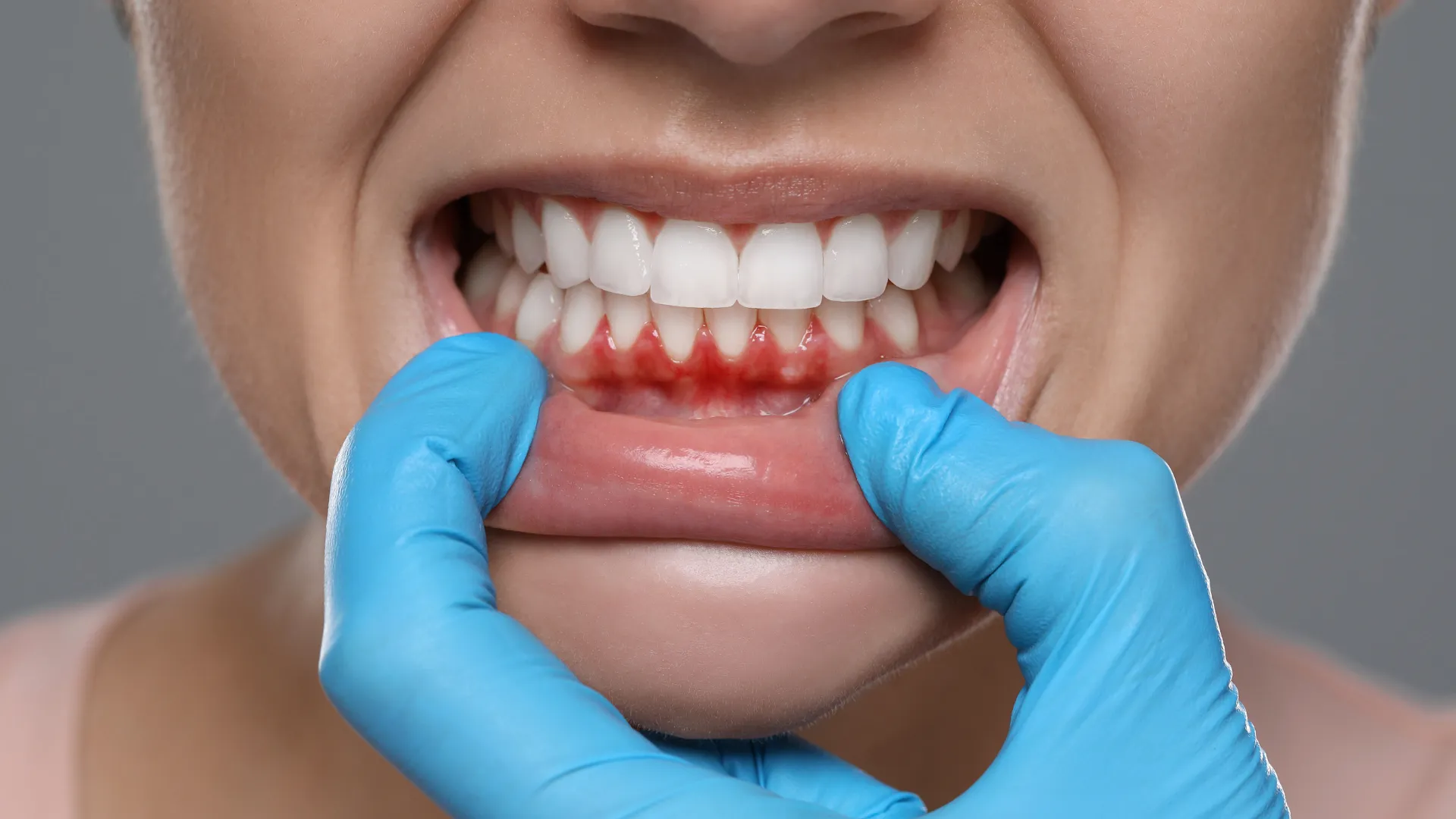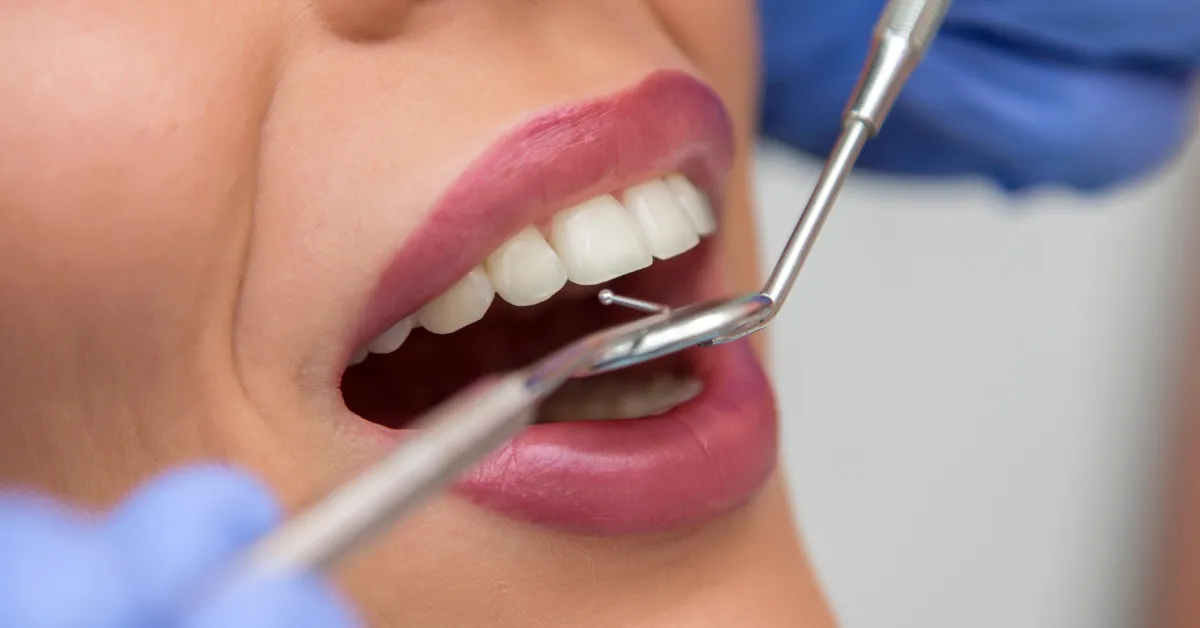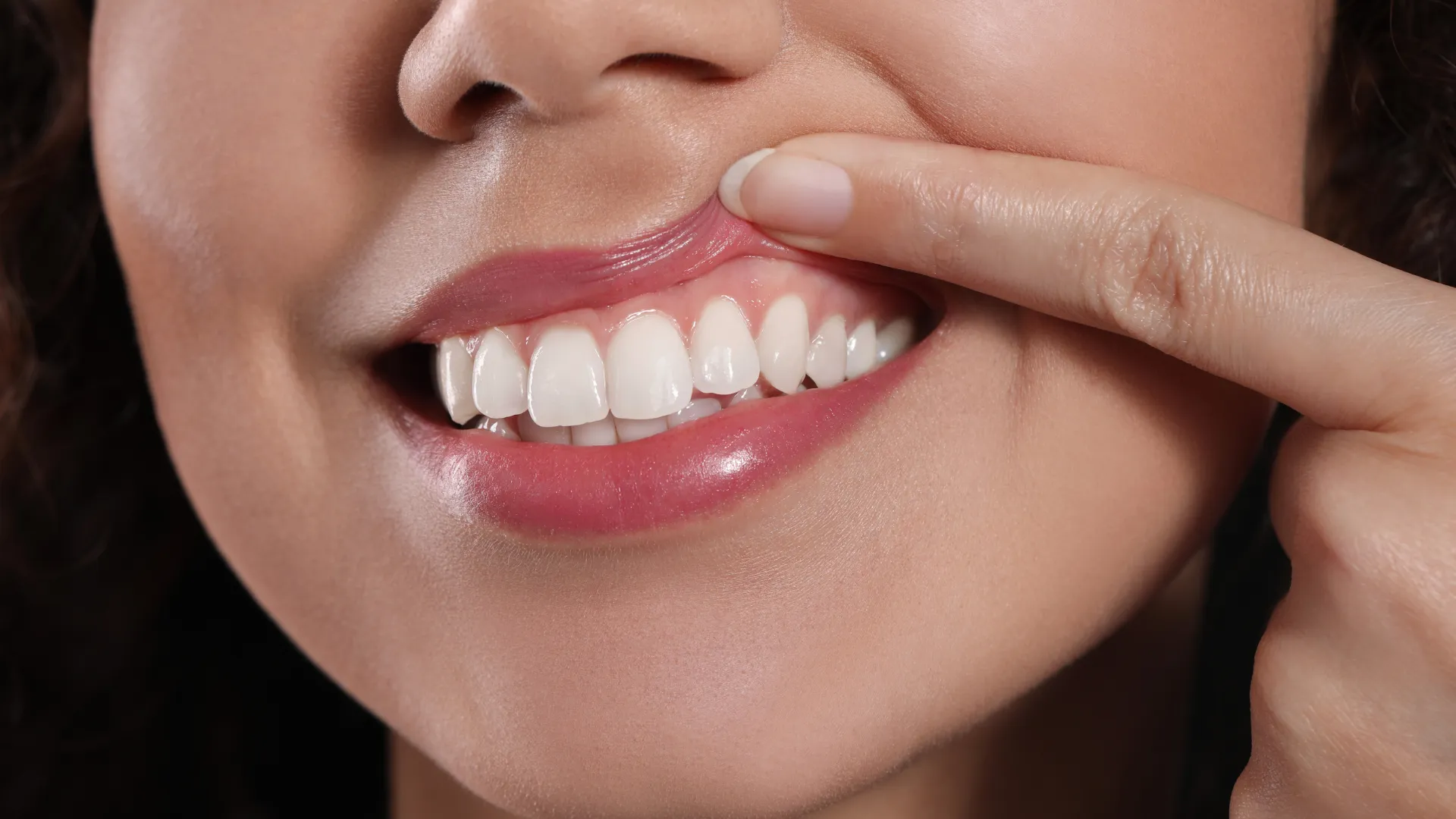Gum Disease: Causes, Symptoms, and Effective Treatments
Gum disease, a common yet preventable condition, affects the tissues surrounding the teeth. Understanding what gum disease looks like and how to address it is essential for maintaining oral health. This comprehensive guide aims to provide detailed information about gum disease, its causes, symptoms, stages, and the latest treatment options, including those available in Roseville.
Table of Contents
What is Gum Disease?


- Gingivitis: The earliest stage of gum disease, characterized by red, swollen gums that may bleed easily. It is often caused by plaque buildup and is reversible with good oral hygiene.
- Periodontitis: This advanced stage occurs when the inflammation extends below the gum line, destroying the bone and connective tissue that support the teeth. This stage can result in loose teeth and tooth loss.
Causes of Gum Disease
- Poor Oral Hygiene: Inadequate brushing and flossing allow plaque to harden into tartar, leading to inflammation and infection of the gums.
- Smoking and Tobacco Use: Tobacco use significantly increases the risk of gum disease and complicates its treatment.
- Genetic Factors: Genetics can affect one’s susceptibility to gum disease. If you have a family history of periodontal disease, you may be at a higher risk.
- Certain Illnesses and Medications: Diseases like diabetes and conditions that reduce saliva flow can affect gum health. Some medications can cause dry mouth, increasing the risk of gum disease.
- Hormonal Changes: Hormonal fluctuations during pregnancy, menstruation, and menopause can make gums more sensitive to disease.
3. Symptoms of Gum Disease
- Red, Swollen, or Bleeding Gums: One of the earliest signs of gum disease. Gums may bleed when brushing or flossing.
- Persistent Bad Breath: Caused by the buildup of plaque and bacteria.
- Painful Chewing: As the disease progresses, chewing can cause discomfort.
- Receding Gums: Gums that pull away from the teeth, making them appear longer.
- Loose Tooth Due to Gum Disease: Advanced gum disease can cause teeth to become loose and even fall out.
Recent Studies and Research on Gum Disease
Statins and Gum Disease: Research presented at the Discover BMB annual meeting in 2024 demonstrated that statins, commonly used for cholesterol management, can reduce inflammation in gum disease. This opens new avenues for less invasive treatment strategies (ASBMB).
Regenerative Treatments: A study published in 2024 highlighted new treatments aimed at regenerating gum tissue and preventing tooth loss, offering hope for better management of periodontal disease (Dental Health).
Gum Disease and Systemic Health: A 2024 study found that Fusobacterium nucleatum, a bacterium associated with gum disease, is present in colorectal tumors, linking periodontal health to overall health (Cancer Health).
Novel Therapeutic Approaches: Alternative therapies are being explored due to rising antibiotic resistance. Strategies targeting bacterial virulence factors and probiotics are promising for maintaining a healthy oral microbiota (BioMed Central).
Effectiveness of New Toothpaste: A clinical study published in the Journal of Periodontology in 2023 evaluated a new toothpaste with stannous fluoride and EDTA. It significantly reduces plaque and gingivitis, crucial for preventing periodontitis (American Academy of Periodontology).
Stages of Gum Disease
Gingivitis: Early Stage
- Symptoms: Include gum inflammation, redness, swelling, and bleeding, especially during brushing or flossing. Gums may be tender and prone to bleeding.
- Reversible with Proper Care: Improving oral hygiene practices can reverse gingivitis. Early-stage gum disease pictures often show red, swollen gums.
Periodontitis: Advanced Stage
- Symptoms: Include receding gums, deep periodontal pockets, bone loss, loose teeth, and chronic bad breath. There may also be pus between the teeth and gums.
- Irreversible Damage: Requires professional treatment to prevent further damage and tooth loss. Advanced periodontitis can lead to significant tooth mobility and loss.
Diagnosis of Gum Disease


- Dental Examinations: Regular dental check-ups help detect early signs of gum disease. The dentist will examine your gums for inflammation, bleeding, and pocket formation.
- X-rays: Used to assess bone loss and other underlying issues related to periodontitis.
- Periodontal Probing: Measures the depth of gum pockets around the teeth. Deep pockets indicate more severe gum disease.
Treatment Options
Non-surgical Treatments:
- Professional Dental Cleaning: Removes plaque and tartar from above and below the gum line. Regular cleanings are essential for maintaining gum health.
- Scaling and Root Planing: A deep cleaning procedure that removes bacteria from gum pockets and smooths the root surfaces to prevent further buildup.
- Gum Disease Medication: Antibiotics or antimicrobial mouthwashes may be prescribed to control infection and inflammation.
Surgical Treatments:
- Flap Surgery: Involves lifting the gums to remove tartar and then suturing them back in place for easier cleaning.
- Bone Grafts: Replacing bone lost to gum disease using bone from another part of your body, synthetic bone, or donated bone.
- Soft Tissue Grafts: Reinforcing or replacing gum tissue lost to gum disease.
- Guided Tissue Regeneration: Stimulating the growth of bone and gum tissue to repair the damage caused by periodontitis.
Prevention of Gum Disease
- Daily Oral Hygiene Practices: Brush your teeth at least twice daily with fluoride toothpaste, floss daily, and use an antimicrobial mouthwash.
- Regular Dental Check-ups: Visit the dentist every six months for cleanings and exams to detect and treat early signs of gum disease.
- Healthy Diet and Lifestyle Choices: Avoid sugary foods and drinks, eat a balanced diet rich in vitamins and minerals, and avoid tobacco products.
- Avoiding Tobacco Products: Tobacco use is a significant risk factor for gum disease and can hinder treatment effectiveness.
Complications of Untreated Gum Disease
- Tooth Loss: Advanced gum disease can lead to tooth loss as the supporting structures of the teeth are destroyed.
- Increased Risk of Heart Disease and Stroke: Inflammation from gum disease can contribute to cardiovascular problems.
- Complications in Diabetes Management: Gum disease can make it harder to control blood sugar levels.
- Respiratory Issues: Bacteria from the mouth can be inhaled into the lungs, causing infections.
Gum Disease in Special Populations
- Pregnant Women: Hormonal changes during pregnancy can increase the risk of gum disease. Good oral hygiene and regular dental check-ups are crucial.
- Elderly Individuals: Age-related changes in the immune system and oral health increase the risk of gum disease.
- People with Diabetes: They are more susceptible to infections, including gum disease, which can also make managing diabetes more difficult.
Conclusion
Gum disease is a serious condition that can lead to significant oral and systemic health issues if left untreated. Understanding the symptoms, maintaining good oral hygiene, and seeking timely treatment are crucial. For residents in Roseville, seeking professional help from a periodontist can ensure effective management and treatment.
References
- “Promising new treatment could regenerate gum tissue and prevent tooth loss.” Oral Health Foundation. February 2024. Available at: www.dentalhealth.org
- McMains, Vanessa. “Gum Disease-Related Bacteria Tied To Colorectal Cancer.” Cancer Health. April 4, 2024. Available at: www.cancerhealth.com
- Pandruvada, Subramanya. “Study suggests statins could help fight gum disease.” ASBMB. March 2024. Available at: www.asbmb.org
- “Advances in novel therapeutic approaches for periodontal diseases.” BMC Oral Health. 2024. Available at: bmcoralhealth.biomedcentral.com
- “New Clinical Study Suggests Effectiveness of New Toothpaste in Combating Gingivitis and Plaque – Two Precursors of Periodontitis.” American Academy of Periodontology. October 11, 2023. Available at: www.perio.org
FAQs Section
1. Can Gum Disease Be Cured?
Gum disease, specifically gingivitis, can be cured if detected early and treated promptly. Gingivitis, the early stage of gum disease, is reversible with proper oral hygiene practices such as regular brushing, flossing, and professional dental cleanings. However, if gingivitis progresses to periodontitis, the damage is more severe and cannot be completely reversed. Periodontitis requires more intensive treatment to manage and control the disease but may not fully restore the damaged tissues.
Sources:
- Oral Health Foundation (Dental Health)
- American Academy of Periodontology (American Academy of Periodontology)
2. What Can Be Done for Gum Disease?
Several strategies can be implemented to manage and treat gum disease, including:
- Improved Oral Hygiene: Regular brushing and flossing removes plaque and prevents tartar buildup.
- Professional Cleanings: Regular dental check-ups and professional cleanings to remove plaque and tartar from areas that are hard to reach with regular brushing.
- Scaling and Root Planing: A deep cleaning procedure to remove bacteria from gum pockets and smooth root surfaces.
- Medications: Use of antibiotics or antimicrobial mouthwashes to control infection and reduce inflammation.
- Surgical Treatments: Procedures such as flap surgery, bone grafts, and soft tissue grafts to restore and regenerate gum tissue and bone lost due to periodontitis.
Sources:
- Cancer Health (Cancer Health)
- American Society for Biochemistry and Molecular Biology (ASBMB)
- BMC Oral Health (BioMed Central)
3. Is Gum Disease Reversible?
Gingivitis, the early stage of gum disease, is reversible with proper dental care and good oral hygiene practices. Symptoms like red, swollen, and bleeding gums can be reversed if treated early. However, periodontitis, the advanced stage of gum disease, is not fully reversible. While the progression of the disease can be halted and further damage prevented, the destruction of the supporting structures of the teeth (gum tissue and bone) is often permanent and may require surgical intervention.
Sources:
- Oral Health Foundation (Dental Health)
- American Academy of Periodontology (American Academy of Periodontology)
4. What is the Cause of Gum Disease?
The primary cause of gum disease is the accumulation of plaque, a sticky film of bacteria that forms on the teeth. If not removed through regular brushing and flossing, plaque can harden into tartar, which can only be removed by a dental professional. Other contributing factors include:
- Poor Oral Hygiene: Insufficient brushing and flossing allow plaque to build up.
- Smoking and Tobacco Use: Tobacco significantly increases the risk of gum disease and hampers treatment.
- Genetic Factors: A family history of gum disease can increase susceptibility.
- Certain Illnesses and Medications: Conditions like diabetes and medications that reduce saliva flow can impact gum health.
- Hormonal Changes: Fluctuations during pregnancy, menstruation, and menopause can make gums more susceptible to disease.
Sources:
- American Society for Biochemistry and Molecular Biology (ASBMB)
- BMC Oral Health (BioMed Central)
- American Academy of Periodontology (American Academy of Periodontology)
Get Expert Gum Disease Care at Miners Ravine Dental Group, CA


Are you experiencing symptoms of gum disease, such as red, swollen gums, persistent bad breath, or loose teeth? Don’t wait for the condition to worsen. Early detection and treatment are crucial to preventing serious health complications. Our seasoned professional dental doctors specialize in comprehensive gum disease care at Miners Ravine Dental Group in Roseville, CA. Utilizing the latest research and innovative treatments, we provide personalized care to restore and maintain oral health.
Our expert team is dedicated to offering top-notch services, from preventive care to advanced treatments, ensuring you receive the best possible outcomes. Whether you need a routine check-up or specialized periodontal therapy, our skilled professionals are here to help.
Take the first step towards better oral health. Schedule an appointment with Miners Ravine Dental Group today and experience the highest standard of dental care in Roseville. Your smile deserves the best!


